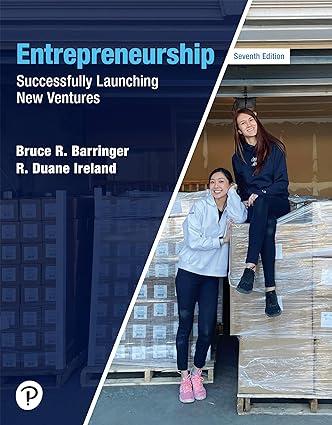Trademark disputes often pit a large company against a startup. This is a David-versus-Goliath type of scenario,
Question:
Trademark disputes often pit a large company against a startup. This is a David-versus-Goliath type of scenario, with a small entity on one side against a giant on the other. Commonly, this type of trademark dispute focuses on one party claiming that the other is using a name that is “confusingly similar” to a trademark they own. The large firm often prevails, but not always. The following are three examples of small firms that experienced success in trademark disputes with large companies. In these instances, the question of “What Went Wrong?” is left with the people representing the large firms. Sara-bella resisted, arguing through her lawyer that the name was acceptable under the fair-use provision, which “recognizes that parody marks cause no harm to the established brand.” Sara-bella’s attorney cited two cases with similarities to Saks’ claim against Snacks 5th Aven-chew. In 2002, Tommy Hilfiger filed a suit against a novelty pet perfume called Timmy Hole-digger. The suit was unsuccessful. Similarly, in 2007 Louis Vuitton objected to a fluffy toy maker using the name Chewy Vuiton. A federal U.S. appeals court unanimously rejected Louis Vuitton’s claim. In both cases, the courts held that the complainants’ arguments did not show any likelihood of confusion between the products in question and the larger company’s registered trademarks because the former were obvious parodies. Not long after these arguments were made, Saks Fifth Avenue notified Sara-balla’s lawyer that they would no longer pursue the matter.....
Discussion Questions:
1. What is your reaction to each case? Are you surprised about their resolution ? Do you think each case turned out as intended by trademark law?
2. Which of the three smaller companies profiled—Eat More Kale, Xoom, or Snacks 5th Avenchew—do you think had the strongest case in defending the name it chose to use? Why? Which company do you think had the weakest case? Why?
3. Why do you think Muller-Moore was able to elicit such passion and support in the trademark dispute with Chick-fil-A?
4. To what degree do you think these cases should embolden small firms so that they will not always have to give in to larger firms in intellectual property disputes if they think the law is on their side?
Step by Step Answer:

Entrepreneurship Successfully Launching New Ventures
ISBN: 9780138091828
7th Edition
Authors: Bruce R. Barringer, R Duane Ireland





